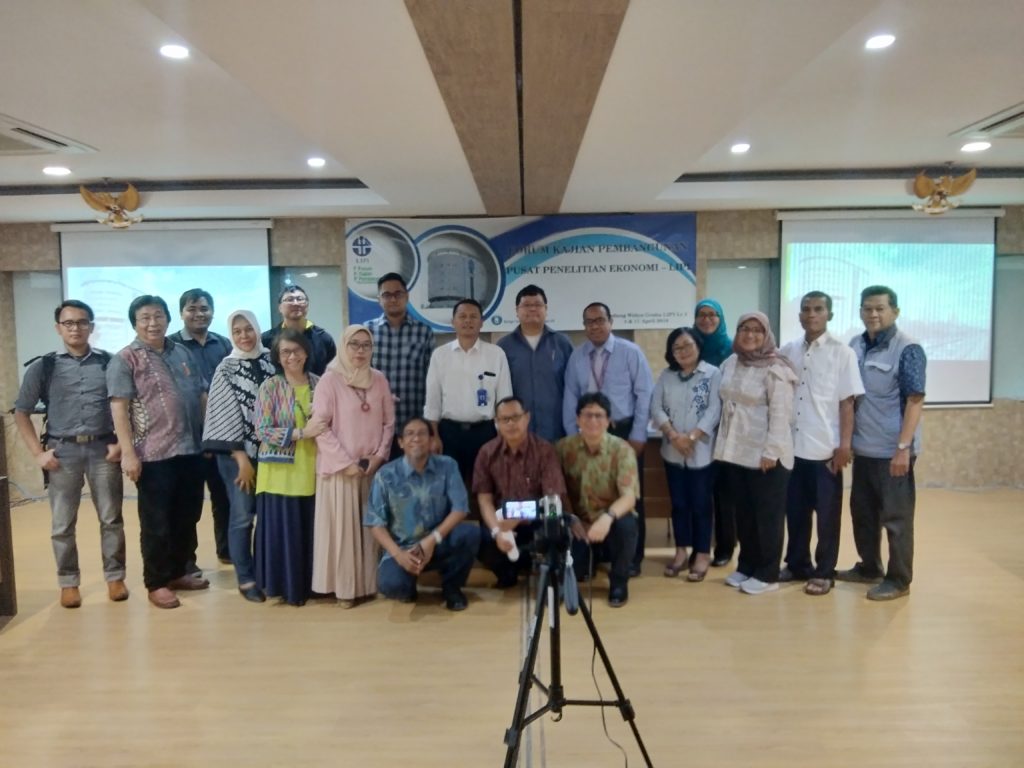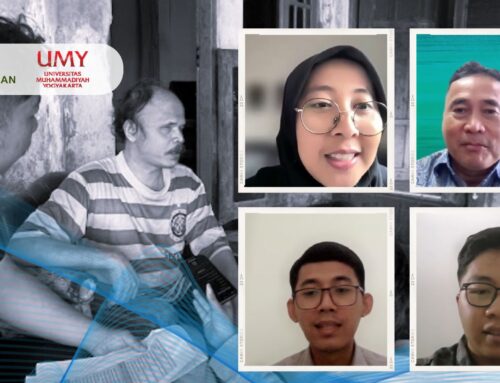The Center for Economic Research, Lembaga Ilmu Pengetahuan Indonesia (P2E LIPI) is host for the FKP in April 2018, and the first event was held on 4 April in Jakarta. Two topics were discussed. First, Daniel Suryadarma (SMERU Research Institute) presented his study on cognitive skills and entrepreneurial success with evidence from household enterprises in Indonesia. Then, Maxensius Tri Sambodo (P2E LIPI) presented his study about how tax policy on books/the publishing industry affect the industry’s sustainability.
Daniel Suryadarma’s study tried to show the correlation between cognitive skills and outcomes of household enterprises (used to as indicator of entrepreneurial success). His study divided cognitive skills into two: fluid intelligence (i.e. problem solving skills and logical thinking) and crystallized intelligence (i.e. knowledge, vocabulary, etc.). The study uses IFLS data from 2007-2014. He specified his measurement of cognitive skills in IFLS in terms of math test, Raven’s Test, and Word recall test.
The study resulted in several findings. First, fluid intelligence has a positive, sizable, and significant relation with business profit. This finding is consistent with the developing country context. Second, the study shows that businesses often face incomplete regulation, which correlate to relatively high uncertainty for entrepreneurs. Third, the observed entrepreneurship is low-tech, low-capital, and labor intensive businesses,which means some policy such as entrepreneur training program may not be effective due to innate fluid intelligence. Finally, access to capital may be needed for all types of entrepreneurs, but for different types of activities.
Maxensius Tri Sambodo, the second speaker, presented a study aimed at understanding the publishing industry, specifically how the industry is being affected by tax on book publishing. Using both qualitative and quantitative methods such cost proxy analysis, content analysis, and interviews, the study collected data in Jakarta, West Java, East Java, Yogyakarta, Riau, West Kalimantan and South Sulawesi. Some findings are as follows. It was found that there are low productivity on producing new books, low interests in reading, and inequality in geographical distribution of publishers. Tax regulation put a bigger burden on the industry, especially for authors and consumers. In addition, it was found that there is a lack of integration between all stakeholders, thus there are asymmetric information. Additionally, the regional governments seem to lack any interest to help solving the problem. Current tax regulation put a heavy loss on authors and it is seen as discriminating rather than and administratively friendly policy. It is therefore important for the Indonesian central government to re-think the tax regulation.
For the complete presentation and Q&A session, please refer to the videos and materials provided.





